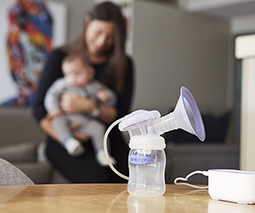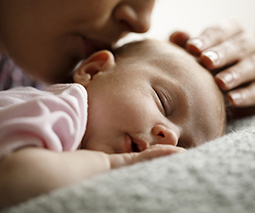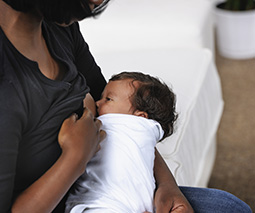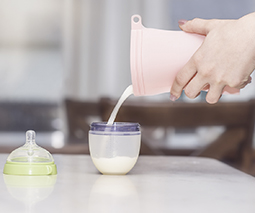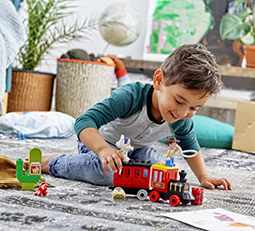How breastfeeding pressure can affect mums’ mental health

Breastfeeding is fantastic when it works, but what happens when it doesn’t? Terri Smith, CEO of Perinatal Anxiety and Depression Australia (PANDA), wants more people to know about the pressure to breastfeed and the effect this can have on new mums.
No pressure but …
According to Terri, one in five expecting or new mums will experience clinical depression or anxiety. Add the pressure of breastfeeding, and it can be disastrous. “The story we hear a lot on the PANDA helpline is that it’s been a really difficult experience to breastfeed and mums are feeling a lot of pressure to keep doing that,” she says.
This pressure can make a mum even more anxious, which is not going to help either her or the baby. “If a mum is highly anxious with the breastfeeding experience, the baby’s going to feel that anxiety,” says Terri. “And if there’s an expectation to breastfeed because that’s the best possible thing you can do for your baby, then that’s very likely to build the anxiety.”
Listen to Terri Smith on Feed Play Love:
When it works
“There’s no question breastfeeding is a great thing for babies and for mums, when it works – and I really want to stress that ‘when it works’,” says Terri. “At PANDA, a conversation we commonly have with mums is that not breastfeeding is possibly one of the many times in your baby’s life that you’re not going to be able to provide everything you’d really like to. But that doesn’t mean you’re failing. You’re still able to be a fantastic mum.”
Terri also believes that sometimes it can be more beneficial for mother and baby to stop breastfeeding. “Sometimes, the most important thing is to stop trying to breastfeed and to get on with managing all the other things that are going on for yourself, because those things are really good for your baby,” she says. “Being able to address the anxiety or depression as soon as possible is actually more important at that stage than breastfeeding.”
The importance of mental health
Having a baby takes its toll on a mum, both physically and mentally. But Terri says the medical profession still does not give the same focus to a mother’s mental health as it does to her physical side.
“There can be very serious ramifications for untreated mental illness at this point in life. Which can be as serious as the loss of life for a mum, and even a baby, so it is a serious issue,” she says. “There’s still so much stigma, and sometimes health professionals tell us that they don’t feel comfortable talking about it.”
Judgement from others
Mothers also suffer from a great deal of judgement when it comes to breastfeeding, with huge expectations around mums being perfect.
“There’s one image of being a good mum, and that’s a mum who can manage everything and do everything and is totally capable,” says Terri. “I don’t think any mum is that mum, but there’s still a lot of focus on trying to be that way.”
The other factor exacerbating the situation is the impact of social media with people always posting their baby highlights.
“The social media world can be really supportive for new mums, it can be a great source of support that’s easy to get,” says Terri. “But for some mums, depending on what their social media network looks like, the best thing to do is to shut it down for a while. If it’s a supportive thing then great, stay with it, but sometimes you need to just close it off for a bit and focus on what’s a bit more real. Sometimes you need a conversation because the things we’re talking about are really complex.”
Light at the end of the tunnel
“As a community, we need to firstly acknowledge that it’s actually more common than we think that women will experience depression or anxiety,” continues Terri. “We need to understand that women don’t feel comfortable talking about it and I think we can all really help mums understand that it’s a tough period and you can really get through it.”
Services such as PANDA’s helpline are incredibly beneficial, as well as the organisation’s website with its many stories of women who’ve had similar experiences.
“We have several hundred champions now across the country, who’ve really made a great effort to share their stories so that other mums know that this is normal, but also that you’ll get through it,” says Terri.
And the good news is for many mums, their anxiety or depression will pass. “For the vast majority it’s going to be a short period,” says Terri. “The sooner they can get help, they’ll be surprised to know they can just start to feel well and feel like they’re the mum they want to be.”


